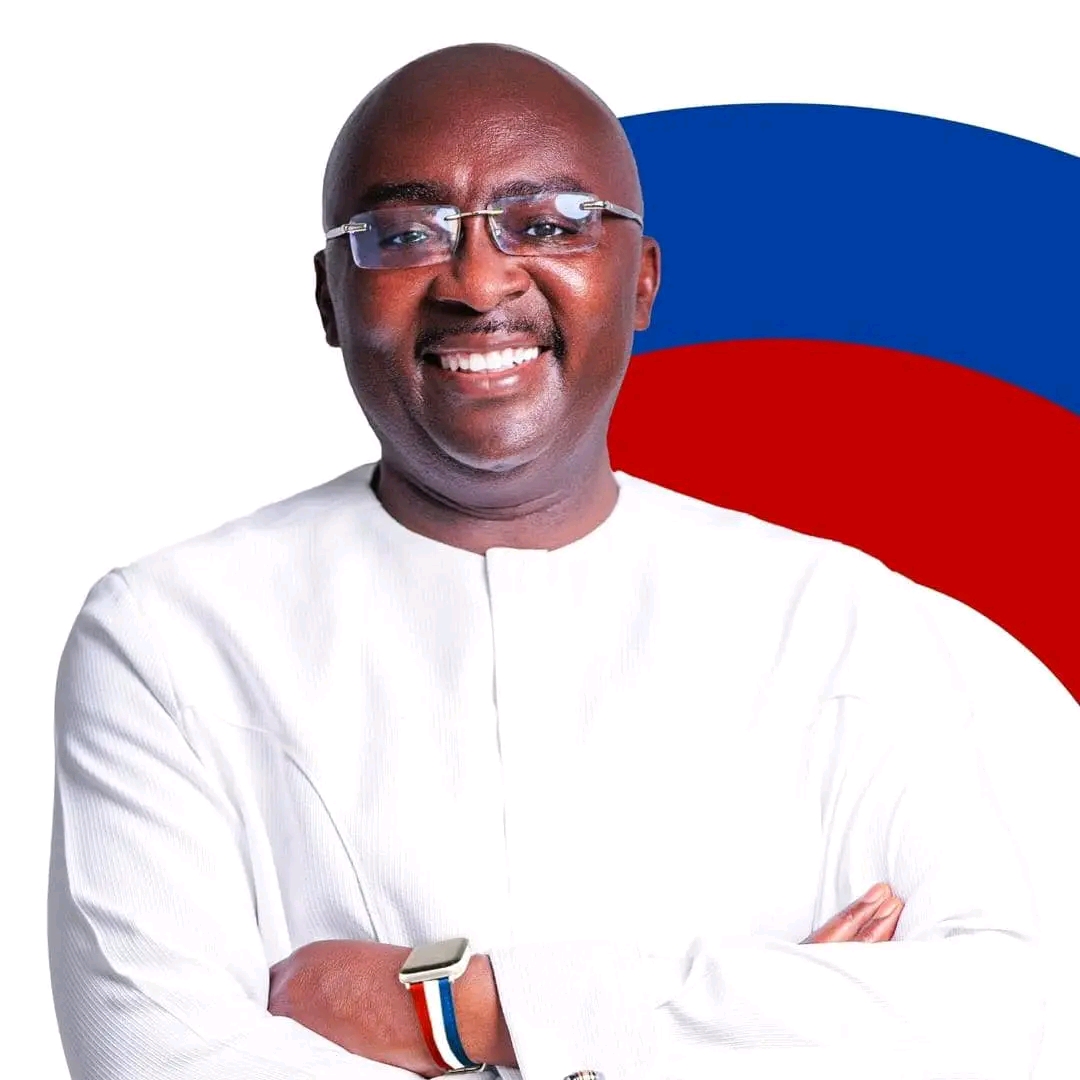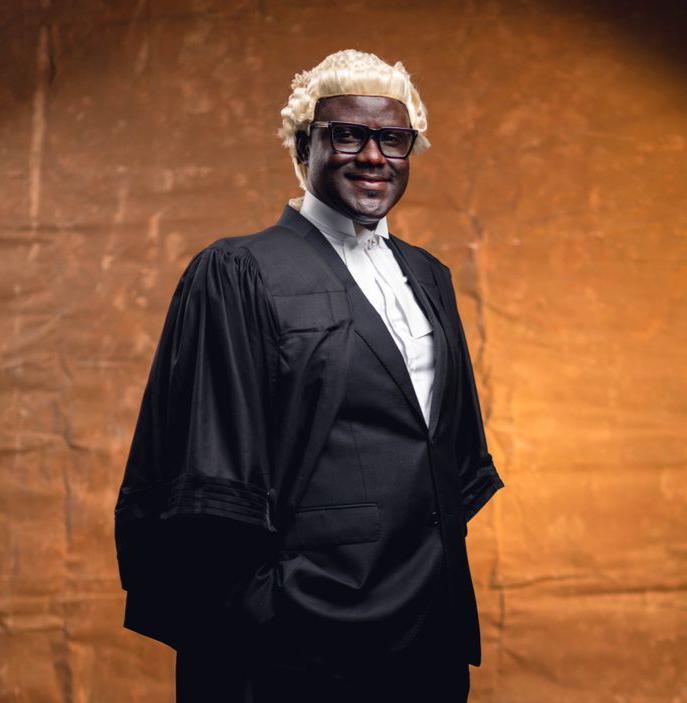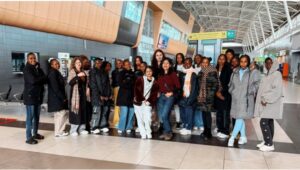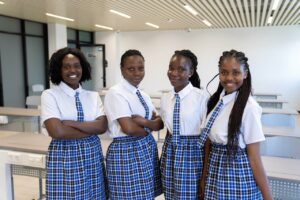
The Director of Operations at the National Security, Colonel Michael Opoku, yesterday took a hesitant decision to accept responsibility for the actions of the National Security operatives involved in the violence at La-Bawaleshie during the Ayawaso West Wuogon by-election in January.
He said as the Operational Commander of the National Security SWAT, he gave the Tactical Commander of the team, DSP Samuel Kojo Azugu, the discretion to act
“We are officers, and as officers, we normally take responsibility for every action that we take. I gave him the discretion, and I am the overall commander of the team, so whatever the decision he took…although I was not there, I was part of it,” he said.
Earlier, he had been hesitant in accepting full responsibility, arguing that DSP Azugu had the discretion to decide what to do, adding: “If he had even informed me about the ongoing situation, it would have been a different thing.”
Col Opoku also defended the wearing of masks by operatives, saying that the posting of pictures of some of the operatives who were involved in the Ayawaso West Wuogon operations vindicated that position.
“The masks that we normally use are to ensure that our operatives are not identified. When you go to town now, there are a lot of posters in town, indicating that some supposed members of my team are wanted by somebody. I don’t know who wants to arrest them. There are posters in town that even include the policemen…
“This was not done by a poor man but someone who has the resources to do this,” he said.
He said the posters had images of persons he did not know, as well as members of the Counter-terrorism Unit of the Ghana Police Service in Kumasi and some of the operatives of National Security.
Below are excerpts of what transpired between the commissioners and Col Opoku
Commissioner Mensah-Bonsu (CMB): Who do you report to?
Col Opoku: I report to the National Security Coordinator (Mr Joshua Kyeremeh).
CMB: As a senior military officer, what do you think about this split line of reporting?
Col Opoku: My Lord, the minister is the political and strategic direction head of the ministry. The coordinator is the operational head of the ministry. In most cases, my report goes to the coordinator on operations. Anytime I’m given an assignment by the minister, I report directly to him.
CMB: Most of the ministries don’t implement anything but set policies. So how come your ministry seems to be implementing, as well as setting policy
Col Opoku: My Lord, the ministry is there and the National Security Council Secretariat is also there. So the National Security Secretariat normally sets the objectives for us to achieve.
CMB: You’re part of the secretariat.
Col Opoku: Yes! My Lord
CMB: But we also have the Bureau of National Investigations (BNI).
Col Opoku: It’s like a sub-unit under the ministry. We have the BNI, the Research Department and the Bureau of National Communications under the ministry.
CMB: Yes, I can see those as implementing agencies. But your security work which falls under the secretariat seems to be an anomaly, don’t you think so?
Col Opoku: No, my Lord, I think those who thought through the operations department, as it is today, thinking through the fact that sometimes in the evening some information may come and they would need to work on it. But putting it through the other services may take quite some time and that is why they asked the Ghana Police Service to give them a SWAT team that could be used to do some of these quick interventions from the secretariat.
CMB: You mean the other services like the BNI can’t work over the hours and you need a body that can do these things out of term.
Col Opoku: My Lord, the police duties that are to be executed are done by the SWAT team, but when it comes to other intelligence issues, they go to the BNI.
CMB: But the kind of duty they were involved in at Ayawaso wasn’t the average police duty. It was a combat duty…
Col Opoku: My Lord, it was an intelligence operational duty.
CMB: A lot of the violence there was unintelligent, sir.
Col Opoku: Admittedly, my Lord.
CMB: You said for the security arrangement of the by-election, you supported the Ministry of the Interior. Did the Ministry of the Interior request this support?
Col Opoku: Yes, my Lord.
CMB: Then how come those in the field did not know of the presence of your men?
Col Opoku: My Lord, those in the field would have to come and answer that because, as I said earlier, they requested for two prominent supports. These were communication support and the use of the National Security Yard at Abelenkpe as their task force headquarters. And, normally, in all elections and other duties, we have the intelligence agencies such as the CID and the BNI being part of such exercises.
CMB: I heard you when you said they asked for communications and operational headquarters. Did that include people on the prowl going to search for weapons in homes?
Col Opoku: My Lord, that was a different assignment. As I said, we were following information or intelligence that we had early on; that was separate from what the election people were doing.
CMB: In terms of the use of discretion on an election day near a polling station which was in a school. By the way, were the schoolchildren there? I’ve never got it from anyone if they were there.
Col Opoku: My Lord, from what I’ve seen, the schoolchildren were not on the scene.
CMB: But I have seen children in the video. It means there were children in the vicinity. Was it well advised that you conduct an operation of that nature in broad daylight with shooting and so on?
Col Opoku: My Lord, the intention was not to go and be shooting in the area which was close to the polling station. The commander had a lot of discretion on what to do. As he said earlier, we reacted to shooting in the house.
CMB: You expected to use a gun and that was why you went with guns.
Col Opoku: Yes, or we knew they were armed…
CMB: How are the people in your unit recruited? You said they are not trained to handle weapons or crowd control but to do patrols and escort VIPs.
Col Opoku: Yes, my Lord.
CMB: And I’m asking how they are recruited. Are they trained in hand-to-hand combat or unarmed combat?
Col Opoku: The recruitment is done through various means, depending on the intelligence needs of the ministry or the secretariat. When they are recruited, we assemble a team from the CID at the Police Headquarters, Police Operations, the BNI, the Research Department and my secretariat to do vetting and thumb-printing. We did this for all those recruited in 2017.
CMB: Do you do psychological profiling?
Col Opoku: My Lord, as and when we need it.
CMB: As and when you need it? When do you need it?
Col Opoku: My Lord, with what happened at Ayawaso, we need to do some psychological profiling by recruiting a psychologist to look into the behaviour of some of our men and how they behave.
CMB: You’re a senior military officer and you want to do psychological profiling after the horses have bolted from the stable.
Col Opoku: My Lord, in all our security services, this has not been part of the system. It is when it is needed that we do some of these things.
CMB: Did you check the background of some of the people you were recruiting?
Col Opoku: My Lord, as I said, a team made up of the CID, the BNI, the Research Department and Police Operations….it was done thoroughly.
Sam George appears
When the Member of Parliament for Ningo-Prampram, Mr Sam George, took his turn before the commission, he denied allegations that he was led or followed by motorbikes to La-Bawaleshie, insisting that he drove alone to the community.
He submitted 29 spent bullets that he said were fired by the National Security team, including at least one known member of the Invincible Forces, a vigilante group linked to the New Patriotic Party (NPP).
He said contrary to reports that he was assaulted by one person, he was slapped by one National Security operative whose name he gave as Mohammed Sule and an unidentified person.
When the Commander of the National Security team, DSP Azugu, appeared before the commission on February 18, 2019, he said the operative in question had told him that Mr George had said some unpalatable things that threatened national peace, unity and cohesion which he (Azugu) declined to say in public but wrote on a piece of paper for the commission.
However, Mr George denied the allegation, describing it as sickening.
“My Lord, we all swore oaths before we gave our testimony to tell nothing but the truth. I state without equivocation that what has been written on that paper and signed by DSP Samuel Kojo Azugu is untrue and a fabrication,” he said.
Asked by counsel for the commission if he (Mr George) had seen a dead boy, Mr George said under the circumstances the person he was referring to was motionless after receiving severe beatings.
He said he was threatened by a National Security operative whose name he only gave as Double that he would receive a stray bullet if he did not keep quiet when he (George) urged him to stop members of the SWAT team from beating someone.
Source: Graphic.com.gh






